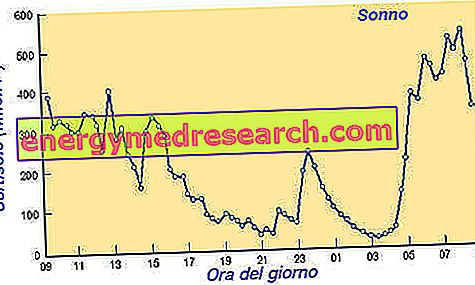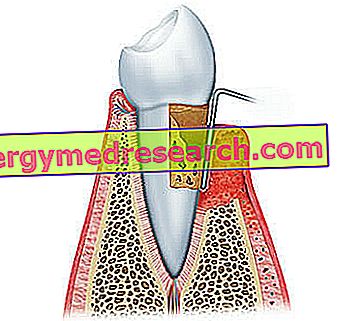Watch the video
X Watch the video on youtubeWhat is Vegetable coal?
Vegetable carbon, also called activated carbon or activated carbon, is a powder obtained by processing timber and its waste.

Property
Vegetable carbon is used as an antitoxic, thanks to its ability to adsorb and retain most of the poisons forming a complex that is eliminated from the digestive tract without being absorbed. The administration of charcoal, followed by that of a saline purgative to eliminate the complex originated, represents, for example, a classic strategy of intervention in case of mushroom poisoning. It is mainly used in the treatment of acute oral poisonings due to its ability to reduce the systemic absorption of ingested substances. It is not an effective antidote in poisoning with iron salts, cyanides, malathion and some organic solvents such as methanol or ethylene glycol; it is ineffective against the damaging action of corrosive acids and caustic alcohols.
Vegetable charcoal is also used in dietary preparation for some clinical tests (ultrasound of the upper abdomen), to absorb intestinal gases that would prevent its correct interpretation.
The adsorbent properties towards liquids, hydrogenions and gas make charcoal a particularly useful supplement in the presence of aerophagia, diarrhea, meteorism and flatulence, also thanks to the mild disinfectant effect on the intestinal level. Clinical utility is however controversial because we must not forget its ability to absorb not only excess gases and liquids, but also drugs (which must not be taken in the interval between 30 minutes before and 2 hours later).
Traditional Indications of Vegetable Charcoal
- Intestinal problems, abdominal dilations, gas, difficult digestion
- Bad breath
- Atrophy, meteorism
- Dispepsie with gastric and intestinal fermentations
- Gastritis, gastric hyperacidity
- Diarrhea, putrid diarrhea, colitis
- Food poisoning, from alkaloids, phosphorus and arsenic
Vegetable carbon online

Online a vegetable carbon supplement is available, which in the presence of gastrointestinal excesses, helps to reduce the creation of gas due to the annoying abdominal swelling. To the known properties of Charcoal those of Cumin join, which favors the digestive processes helping to regulate intestinal motility. It is recommended to take at least 3 tablets, to be swallowed preferably after the main meal. The dose can be doubled to 6 tablets, 3 after lunch and 3 after dinner, as needed.

Alternatively you can opt for a supplement of vegetable carbon that contributes to the reduction of intestinal gas after a meal. The activated carbon contained in the supplement is an ingredient of 100% vegetable origin, obtained with a specific carbonization process that allows to create a network of pores; this considerably increases the specific surface of coal absorption. The method of intake includes four tablets a day, if necessary. Do not exceed the indicated doses. The beneficial effect is obtained by taking 1g of charcoal at least 30 minutes before a meal and 1g immediately after a meal.
Adsorbent properties
We recall that the term "adsorb" means to make individual molecules adhere to a given surface, while an absorbent medium, like a sponge, is impregnated with these substances. The charcoal therefore has the ability to retain on its surface liquids, gases, bacteria, pathogens, toxins and viruses present in the gastrointestinal tract. These properties depend on the high surface area due to the presence of an enormous number of microscopic pores, which imprison the particles (ions and molecules) of the substance with which it is in contact.
- In addition to directly absorbing intestinal gases, charcoal also retains part of the bacteria that produce them (mild "disinfectant" action)
Furthermore, vegetable carbon has adsorbent and non-carminative properties; the latter term, in fact, is reserved for all those products that promote the expulsion of intestinal gases (such as mint, which also has a precious antispasmodic effect, fennel, cumin and anise).
The properties of vegetable carbon are widely exploited in the industrial sector (also thanks to its ability to regenerate itself if heat treated), thanks to the decolorizing and purifying activity in general; active carbons are present, for example, in water filters or in those of anti-gas masks.
Black Bread with Vegetable Charcoal
X Problems with video playback? Reload from YouTube Go to Video Page Go to Video Recipes Section Watch the video on youtubeSide effects and contraindications
Vegetable charcoal is not absorbed by gastrointestinal mucosa, nor does it manifest toxic effects, nor irritate the intestine, but it should not be taken in case of lesions of the digestive tract.
At too high doses and used too long it can cause a constipating effect. The appearance of black stools after taking charcoal has no pathological significance. However, vegetable carbon is contraindicated in the presence of intestinal obstructions or appendicitis.
Vegetable carbon can reduce the absorption of certain drugs if taken at the same time. It should not be used concomitantly with other oral antidotes because it would make it less effective; for the same reasons it should not be associated with the emetic syrup of ipecacuanana or other emetics.
Mode of use
Associations, Mode of use and formulation examples
The doses of intake normally recommended as an antifermentative / antiputrido are about 1/2 grams per day (2-4 capsules to be taken between meals). In the case of meteorism, aerophagia and flatulence, the association of charcoal with plants or extracts with carminative action, such as fennel, cumin and coriander, has proven to be effective.
Below are two examples of commercial charcoal-based products.
Product A (Integrator) ::
Ingredients: Vegetable carbon ( Carbo vegetabilis ), Sucrose, Corn starch, Gum arabic, Magnesium stearate.
| Quantities per minimum recommended daily dose - 4 tablets | |
Charcoal | 1.33 g |
It is advisable to take 4 to 6 tablets of Vegetable Carbon per day between meals. Precautions for use: Vegetable carbon can reduce the absorption of certain drugs if taken at the same time.
Product B (Integrator):
Ingredients: Fennel ( Foeniculum vulgare ) powder fruits, Charcoal, Gelatin, Chamomile ( Chamomilla recutita ) freeze-dried extract flowers, Carvi ( Carum carvi ) powder fruits, Cumin ( Cuminum cyminum ) powder fruits, Fennel ( Foeniculum vulgare ) essential oil, Peppermint ( Mentha Piperita ) essential oil.
| Quantities for minimum recommended daily intake - 2 capsules of 500 mg | |
Fennel fruits phytocomplex total titrated in essential oil ≥2% | 250 mg 5 mg |
Chamomile freeze-dried extract flowers titrated in apigenino-like flavonoids 1% | 135 mg 1.35 mg |
Charcoal | 208 mg |
Caraway phytocomplex total fruits | 110 mg |
Cumin phytocomplex total fruit | 80 mg |
Essential oils of Fennel and Mint equal to about 1.25 drops of essential oils | 25 mg |
It is advisable to take 2 capsules once or twice a day immediately after the main meals if the abdominal tension is due to the digestive processes, away from meals in all other cases. Precautions for use: Vegetable carbon can reduce the absorption of certain drugs if taken at the same time
Product C (Medication)
| Active Principles for a Tablet | |
Charcoal | 333 mg |
Simethicone | 50 mg |
- THERAPEUTIC INDICATIONS: Symptomatic therapy of gastrointestinal disorders characterized by abnormal development of intestinal gas.
- DOSAGE AND METHOD OF ADMINISTRATION: One or two tablets, two or three times a day, after meals, to be swallowed whole with a little water.
- CONTRAINDICATIONS: Known hypersensitivity to the components of the product.
- SPECIAL WARNINGS AND PRECAUTIONS FOR USE: After a short period of treatment without appreciable results, consult your doctor. Long-term therapies, given the specific properties of vegetable charcoal, could cause a reduction in absorption - hence a relative lack - of dietary factors, such as vitamins and mineral salts; the use will therefore be limited to short periods of time. In consideration of the adsorbent properties of the coal, any other drugs must be taken at a distance from the administration of the drug.
Sponsored content: My-personaltrainer.it presents products and services that can be purchased online on Amazon and / or on other e-commerce sites. Whenever a purchase is made through one of the links on the page, My-personaltrainer.it could receive a commission from Amazon or other cited e-commerce. We inform you that the prices and availability of the products are not updated in real time and may change over time, so we invite you to check availability and price on Amazon and / or on other cited e-commerce.


